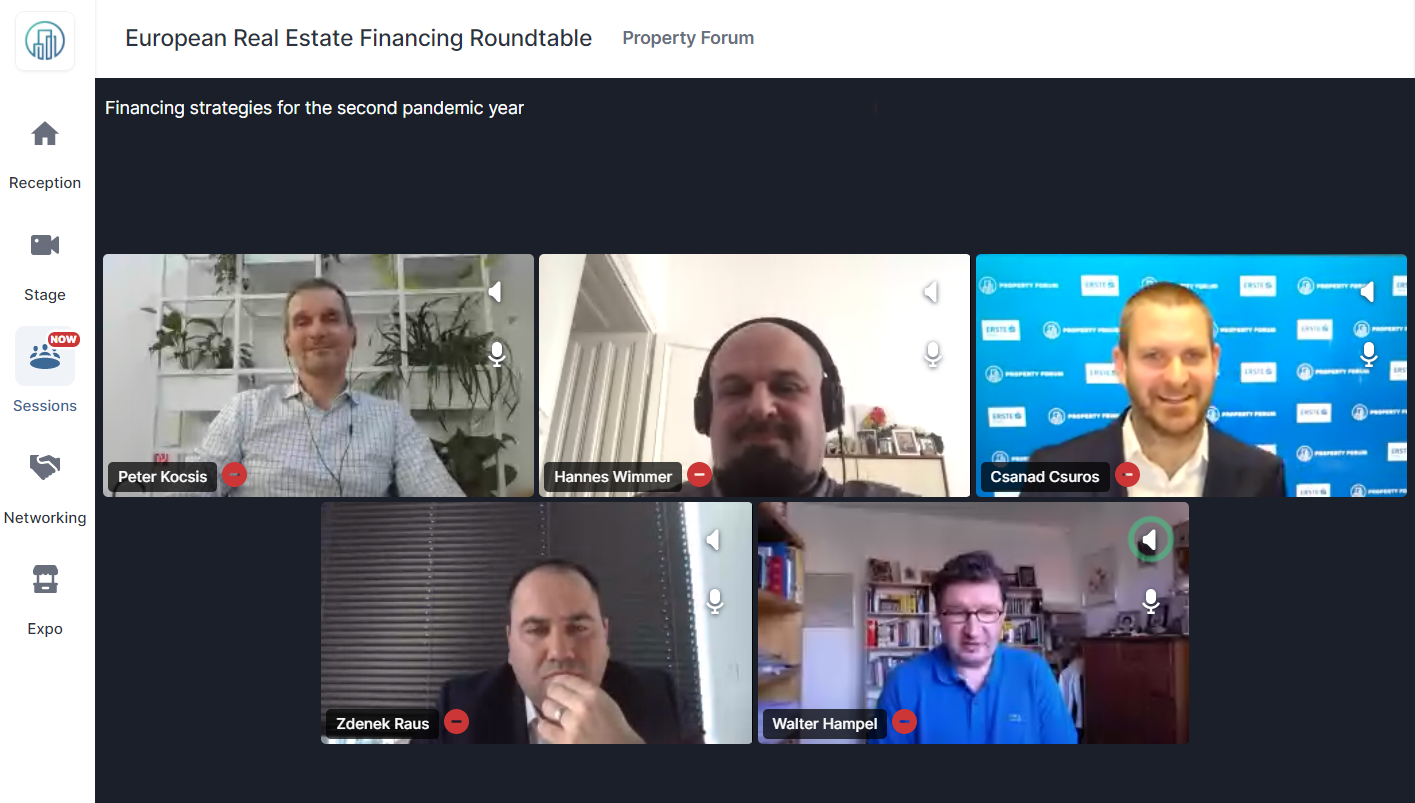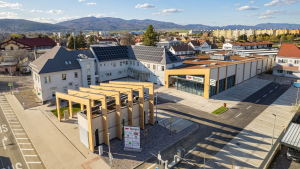
The latest online panel discussion by Property Forum focused on real estate financing strategies in the second pandemic year. Influential bankers, CFOs and advisors discussed, with the moderation of Csanád Csürös, CEO of Property Forum, how the perception of real estate as an asset class has changed and how the pandemic impacted financing conditions.
We can expect a quick rebound in the short term, but not in the long-term, assessed Dr. Walter Hampel, MD, Head of Real Estate Finance International Clients & CEE at Deutsche Pfandbriefbank AG. On the one hand, we will likely see a strong economic activity from the consumer side once the pandemic is over. On the other hand, we can see clearly difficult long-term effects that will not recover very soon. If we look at the retail sector, it will definitely need a couple of years to recover.
Alternative financing is present only in some specific sectors, especially for big companies such as CTP and Prologis, but for most clients in the CEE region, traditional commercial banks will remain the source of finance, he added. Regarding interest rates, the expert expects a slight increase in the medium-term but in the long term, we can count on pretty low interest rates.

Péter Kocsis MRICS, Deputy CEO - Strategy, Controlling, Risk at WING agreed, that for the foreseeable future, we will not see an increase in the interest rates, especially in Europe, as the European Central Bank has very little incentive to increase interest rates unless there will be strong inflation.
Both in Poland and Hungary, residential developments are doing very well as financing is available from local banks. Even in the office sector, new office spaces are to be built, he explained.
From the borrower perspective, the flexibility of bond financing is currently wider than that of traditional project-specific financing. This is partly the reason that 3 to 5-year bonds are back in the market, he explained.
Karl Wilson, Managing Director UK & CEE at Aareal Bank AG is also optimistic about a quick bounce back. If we look at the figures of the US, we can see distinctly that higher vaccination rates show higher economic activity. This means that we can expect the same in Central Europe later in the year. Of course, actors are more cautious with development pipelines, he added.
Hannes Wimmer, Executive Director and Loan Syndication at Erste Group Bank AG also stated that there will be a slowing down in the development pipeline in the next year. However, as tenants are revaluating their need for space, this will change again. Also, we can observe a broadening of source and products.
There is a very strong rebound among the tenants on the industrial side, affirmed Zdeněk Raus, Group Treasurer at CTP.



